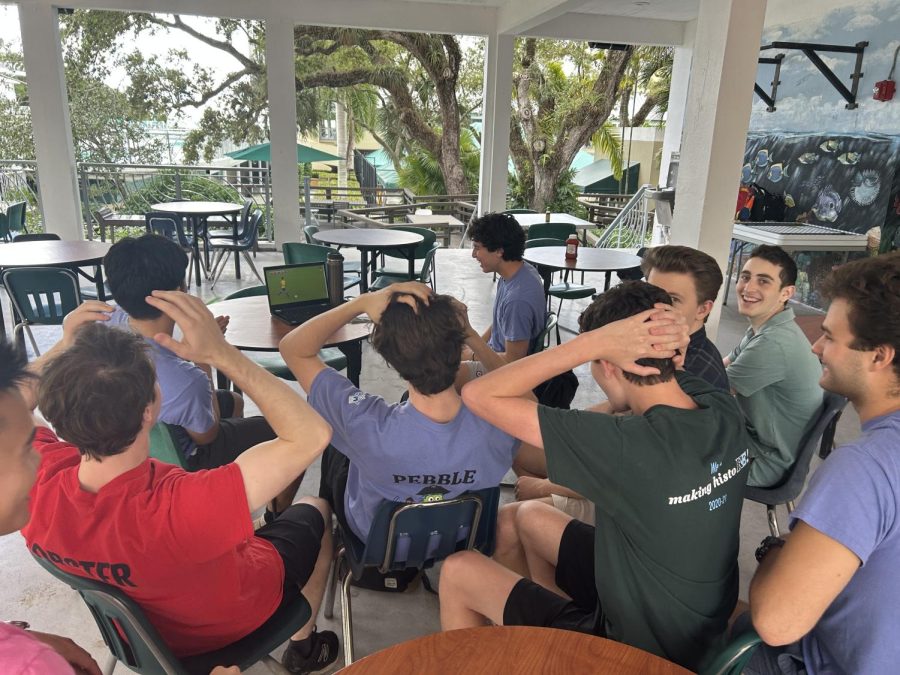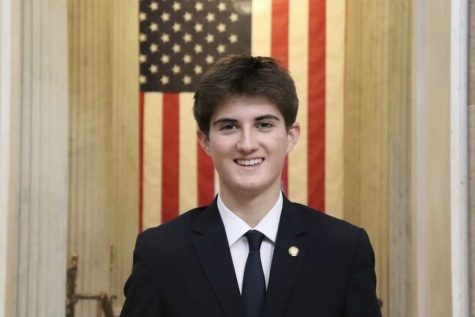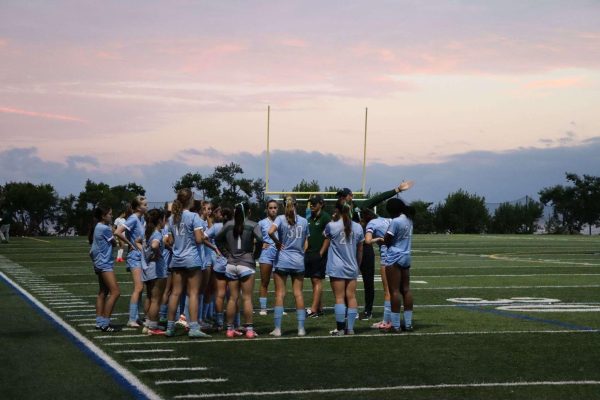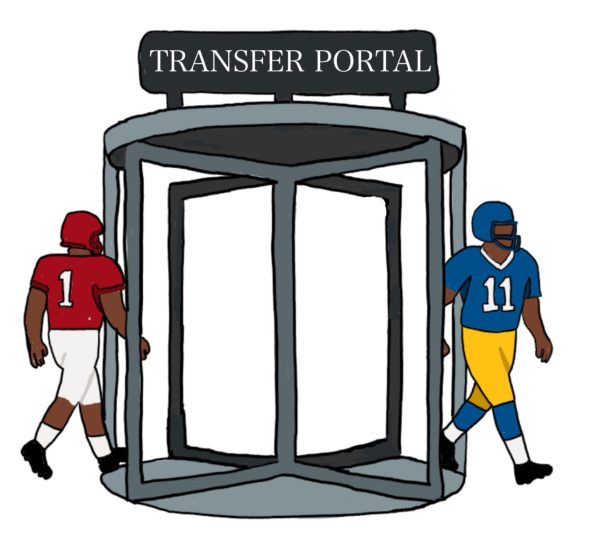Qatar’s World Cup was sportswashing at its most shameless
Students watching the 2022 World Cup on the Senior Deck.
There is a word to describe violent or inhumane governments associating themselves with massively recognized sports: sportswashing. This has occurred multiple times throughout history and is happening more and more frequently, with perhaps its most recognized instance being the 1936 Olympics in Nazi Germany. More recent examples include Russia’s 2018 World Cup and, even more prominently, the 2022 World Cup in Qatar, a country that swept corruption, the inhumane abuse of migrant workers and violations of freedom under the noses of every football fan worldwide.
According to The Guardian, 6,500 migrant workers brought into Qatar to build the infrastructure of stadiums, hotels, and amenities died after FIFA awarded the World Cup bid to Qatar in 2011, with likely many more going unreported. These migrant workers were given little in return for the labor they put into constructing Qatar’s World Cup project: a measly 2 or 3 meals a day, and cramped housing. Even worse, they were trapped by something called the kafala system, a remnant of British colonialism that gives Qatari employers free rein to commit severe human rights violations like confiscating workers’ passports, stealing their wages, and providing unsafe working conditions and crowded, dirty labor camps.
As human beings with moral principles and football fans, we should not have let this go without notice. And, to their credit, nonprofit organizations such as Amnesty International did take notice, informing the world about the issue of migrant workers and how to help. Nevertheless, the corruption inside of FIFA that allowed Qatar to host such a prestigious event was an atrocity in and of itself.
How much money did Qatar spend on this World Cup? The answer is at least $220 billion. Only $10 billion was actually spent on the stadiums; the rest is said to have been spent on transportation, hospitality, telecommunications, and security infrastructure. If this screams “under-the-table money” to you, you wouldn’t be wrong: The complications and corruption inside FIFA caused a great deal of controversy that led to a huge scandal. The scandal began when a number of FIFA officials were found to have been bribed by Qatari elites in order to secure the bid for Qatar. This led to an investigation by the FBI, which uncovered evidence of widespread corruption and money laundering within FIFA. This included bribes, payments to officials, and an alleged cover-up by former FIFA President Sepp Blatter and other officials. As a result, several high-ranking FIFA officials were arrested and face criminal charges.
For many football fans, like Rafael Coronel ‘25, this context of outrageous corruption overshadowed the games themselves. “I feel angry with FIFA’s decision to host the World Cup in Qatar. Watching the World Cup this year just wasn’t the same,” he said.
I think Rafa speaks for a majority of football fans, including me. The 2014 World Cup in Brazil was one for the record books, captivating the whole world with the intensity and passion of the football on display without the feelings of guilt which have come from the past two World Cups. A cascading series of scandals has tarnished FIFA’s reputation and led many to question the validity of any decisions they make.
The World Cup in Qatar was also a disaster for LGBTQ+ people, whose freedom and security are imperiled by Qatari law. According to Article 296 of Qatar’s current Penal Code, “sexual acts against nature” are punishable by up to 5 years in prison. How can a person from this community attend a World Cup in a place like Qatar? Dario Minden, a football fan who is also a part of the LGBTQ+ community, expressed his concerns with Qatar’s policies through social media, arguing, “It’s not safe and it’s not right. It doesn’t matter if you’re lesbian, if you’re gay, it’s for everyone. For the boys, for the girls and for everyone in between … The rule that football is for everyone is so important.” It is extremely unethical to limit which football fans can come to watch a worldwide celebration of the sport.
A lesson to take away from the 2022 World Cup: sportswashing is an insidious, overarching, and entirely money-driven process that’s extremely difficult to stop. If FIFA’s top officials won’t correct the culture of graft that pervades their organization, these problems will only fester. Only one viable option remains: for the good of the sport, basic human dignity, and democracy around the world, don’t tune in the next time it happens.

Matthew is the current Media Editor and previously a sports editor for the Catalyst. He loves watching sports, producing music, and playing golf.







